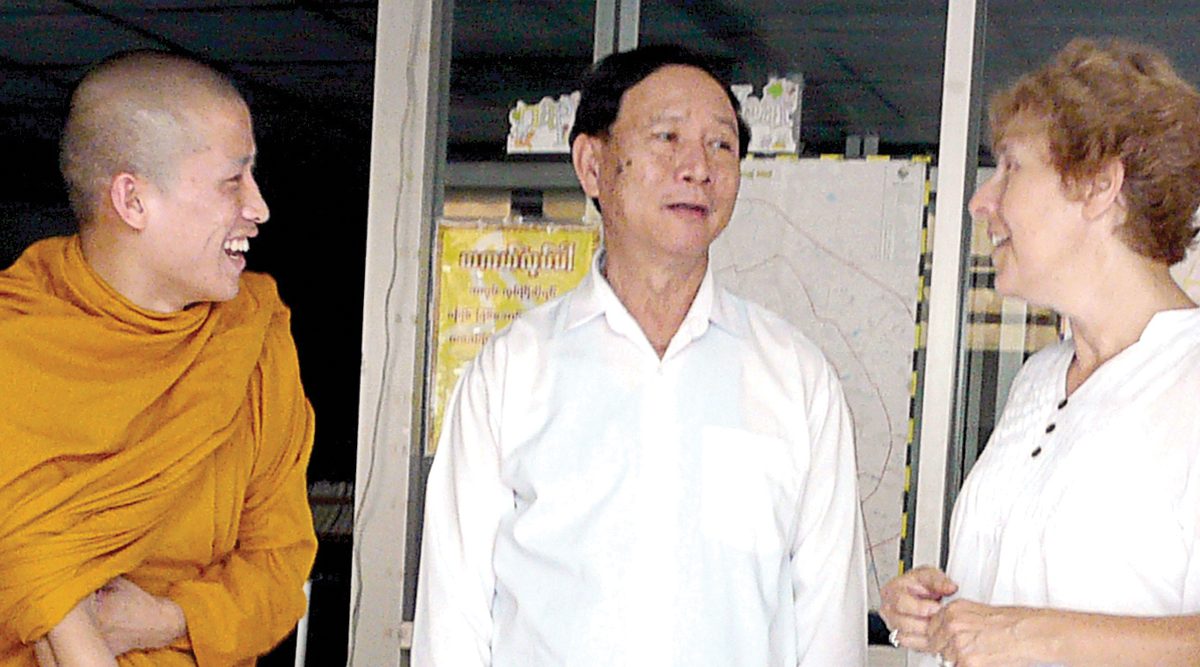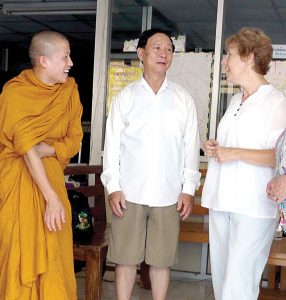
A reflection by Fr. Dave Warren, S.F.M., for Trinity Sunday. First Reading: Proverbs 8.22-31; Second Reading: Romans 5.1-5; Gospel: John 16.12-15
You’re nobody till somebody loves you.
You’re nobody till somebody cares.
I wonder if Dean Martin realized how much truth there is in these words. Our human existence thrives on relationships; without them, we are nothing. What do we have that we have not received from somebody else?
Humans are a social network because we are made in the image and likeness of God, and God is a social network. We call that social network the Trinity.
The Trinity is a network of relationships that we call Father, Son, and Spirit. Notice that Father, Son, and Spirit are each relational terms. A father is not a father without a son or daughter; a son is not a son without a father; a breath (which is the meaning of “spirit”) is not a breath if there is nobody to breathe it.
The Trinity is a network of relationships. But more than that, the Trinity is total sharing: “All that the Father has is mine,” says Jesus in today’s gospel (John 16.15). And what the Son has is given to the Spirit: “[The Spirit] will glorify me, because He will take what is mine and declare it to you” (John 16.14). Each one gives everything that he is to the others.
The Father is God. The Son is also God because the Father gives everything He is to the Son. And the Spirit is God because the Father and the Son give everything they are to the Spirit. Each gives everything he is to the others, yet suffers no diminishment. The Father, the Son, and the Spirit share everything they are with each other and at the same time preserve their own distinct identity. The Trinity is the mystery of perfect community with no loss of individual identity. We humans struggle with that.
Married couples struggle with individuality in community. All of us—whether married or single—struggle with it. We struggle with it in our families, with our friends, with our teammates, and with our workmates. We want community with others, but we don’t want to lose our individuality.
Our faith in the Trinity suggests that it is possible for us to live in harmony with one another—we are made in the image and likeness of the Trinity who are unity in diversity, individuality in community.

Former Scarboro lay missioner Susan Keays with Mr. Hsai, director of the Migrant Centre where Susan taught, and a Buddhist monk studying at the Centre. Thailand. 2010
What is true of us as individuals is also true of us as groups. It’s true of us as ethnic groups and as religious groups. We want to live as one family, but how can we be one without losing our distinct ethnic and religious identities? Some say it’s impossible. Our faith in the Trinity suggests that it is possible for us to live in harmony with one another—we are made in the image and likeness of the Trinity who are unity in diversity, individuality in community.
We struggle with individuality in community. We also struggle to share with one another—if we give, will there be enough left for us? Some say that we are individuals on our own and that there is no alternative to self-interest and competition. But our faith in the Trinity suggests that an alternative is possible: we can cooperate and we can share because we are made in the image and likeness of the Trinity who are sharing itself. The good of one is the good of all; the good of the individual is the good of the community.
The Trinity is not just a truth about God; it is a truth about us. In fact, it is the deepest truth about us.
The Trinity is not a problem to be solved but a mystery to be lived. The mystery is that in the process of relating to others, we discover who we truly are. We become ourselves when we give ourselves to each other. Life is sharing and not competition. In the name of the Father, and of the Son, and of the Holy Spirit.
